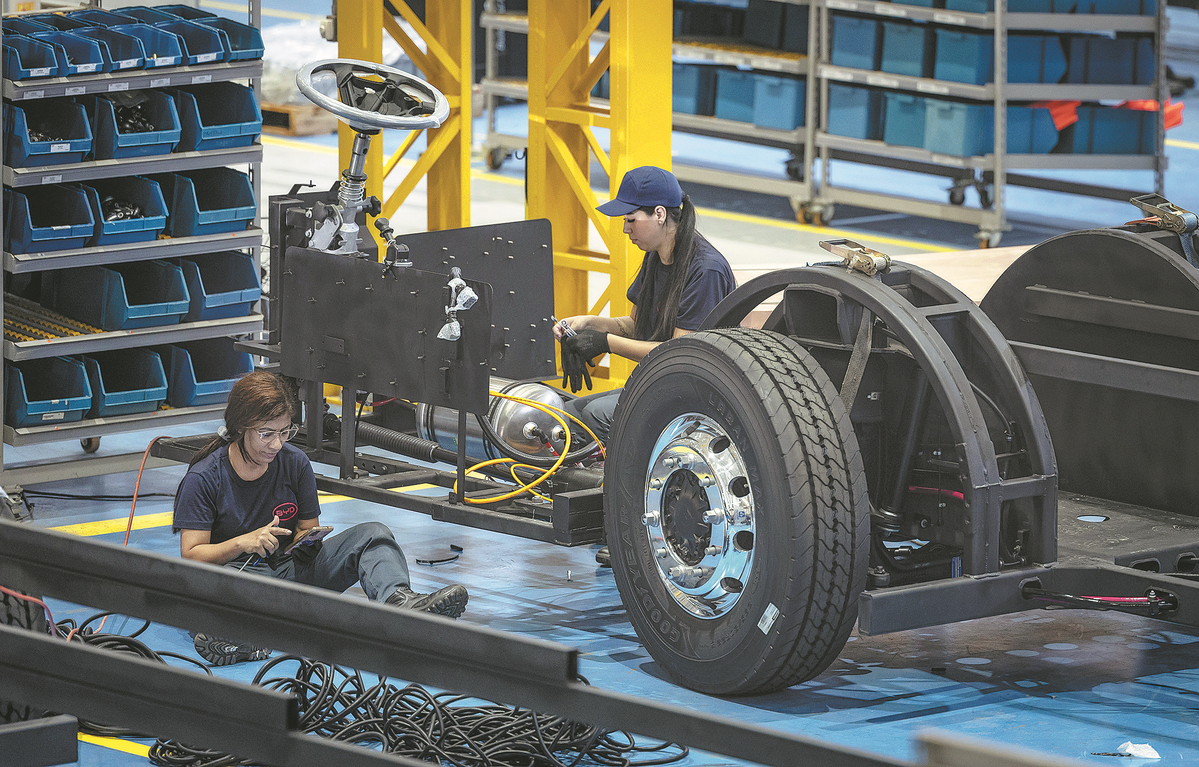Chinese EV sales in Latin America zoom
Advanced technology and competitive pricing helps in rising market share


Made-in-China electric vehicles are winning over car buyers across Latin America and reshaping views about Chinese products.
The advanced technology and competitive pricing of Chinese vehicles — EVs as well as traditional cars — are rapidly translating into rising market share for China's automakers in the Latin American market.
In 2019, Chinese carmakers sold about $2.2 billion worth of vehicles across Latin America, according to the International Trade Center. By last year, the value of Chinese vehicles sold in the region almost quadrupled to $8.56 billion, accounting for roughly 20 percent of the region's car market.
The quality of the cars and their price caught the attention of buyers like Florencio Perez Romero, a pilot in Mexico. Romero recently bought a Chinese-made MG RX5 because of the features it includes, like a large touchscreen console, myriad sensors and LED lighting, as well as an appealing panoramic sunroof.
"These are cool features. Compared to similar SUVs in the market like Toyota, Volkswagen, Ford and Chevrolet, it seemed like a good deal," said Romero.
The price tag was another big factor for Romero, who noted that when all is said and done, Chinese vehicles end up being cheaper than similar offerings from other brands.
Making strides
Chinese EV makers have been making strides in global markets. BYD, for example, has topped Tesla, which also makes many of its cars in China, as the top EV seller globally.
But they are facing significant headwinds in North American and European markets, which have increased their scrutiny and tariffs, Oxford Economics noted in a report.
The US increased the import tariffs on China-made vehicles from 27.5 percent to 100 percent in May, and Canada followed suit in late August. In June, the EU Commission announced plans to impose tariffs on imported Chinese cars, and adjusted them in August. For example, tariffs on Tesla EVs manufactured in China were cut from 20.8 percent to 9 percent while tariffs on BYD vehicles were reduced marginally from 17.4 percent to 17 percent.
In Latin America, meanwhile, sales are flourishing, from Mexico all the way down to Argentina's Ushuaia, the world's southernmost city. In many markets across the region, including Colombia, Brazil, Peru, Bolivia and more, where buyers are very price-conscious, the savings attached to buying a Chinese car make a big difference.
In Chile, in particular, Chinese automakers have been particularly successful both in selling cars to private buyers and providing vehicles to support infrastructure development, like public transit. Chileans are increasingly willing to buy Chinese traditional cars and EVs.
"Brands like MG, Maxus, Great Wall and Chery have dominated the streets with the highest sales numbers among Chinese brands, suggesting considerable popularity (among) Chilean customers when buying a new vehicle," said Renzo Burotto, a historian at the University of Chile.
According to the National Automotive Association of Chile, 111,108 China-made cars were imported to the country in 2023, reaching a market share of 39.4 percent.
Burotto attributed the growth of Chinese EVs in Chile partly to a free trade agreement and strong commercial ties between the two nations.
Chinese EVs are also increasingly visible in public transportation. Burotto pointed out that Santiago, the Chilean capital, uses more than 2,000 electric buses imported from China. Santiago, which has the second-largest fleet of such buses in the world outside of China, has replaced more than 1,000 diesel combustion buses.
And there is little reason to think that buyers across Latin America will not continue scooping up Chinese cars and EVs. Any concerns about the quality, technology or safety of made-in-China products are fading quickly.
"China no longer just makes irons and blenders," said Burotto. "It is now not only manufacturing but also leading in innovation, with a view to sustainable development, and putting China's unparalleled production capacity at the service of Global South countries that so desperately need to emerge from their chronic infrastructure deficit."
The writer is a freelance journalist for China Daily.

































